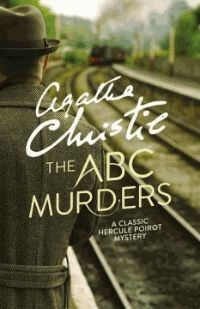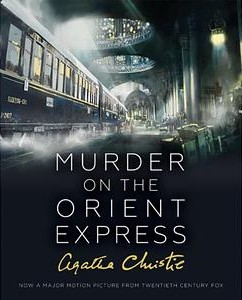
Every now and then I go on an Agatha Christie tear and just read a bunch of her books in a row. It's so easy to do—they're relatively short, after all, and they're pretty easy reads.
But the thing is, they’re 90 to 100 years old, give or take, and yet they still hold up (the odd bit of very outdated sexual politics aside). The understanding of human nature—Miss Marple would be proud—is solid, and the mysteries are all engaging. I don’t think there’s a single one without at least some little twist in it. She’s a master of many of the arts of mystery writing, but misdirection in particular is key. I read these two one after the other and misdirection is key in both, albeit in different ways, so I thought I’d put the reviews together.
The ABC Murders at first glance seems more like a how- or why-done-it rather than a whodunnit because she drags a perfectly acceptable—even possibly sympathetic—suspect across your path as a distraction from the real murderer.
It’s an unusual read in many ways. The viewpoint switches from Hastings’ first person to Alexander Buonaparte Cust’s third person, which is not common and has a nice distancing effect to poor Mr Cust. The supporting cast are more developed than Christie’s secondary characters sometimes are; they’re active participants in the story and the mystery-solving, even if it’s left to M. Poirot to come up with the final, correct answer.
The characterisation of Poirot is interesting too. He has aged since his first appearance in The Mysterious Affair at Styles, after numerous protestations of retirements in other novels; he has doubts, and must deal with a rather newer-fashioned Scotland Yard detective who doesn’t hold much with Poirot’s old fashioned and somewhat unusual methods.
(Side note: Christie published The ABC Murders in 1936. She wrote more than 20 more Poirot novels before concluding with Curtain, published in 1975, though written during WW2. He might have been slowing down and threatening to retire and grow vegetables, and his creator might have tired of him, but he obviously still had a lot of life left.)
As always, the story’s logical once it’s worked out and spelled out for the reader; Hercule Poirot comes through in the end as always.

So if The ABC Murders plays with misdirection by laying a false trail, what about Murder on the Orient Express?
It’s probably the best known of Agatha Christie’s novels, with multiple movie, TV and radio adaptations; it’s justifiably famous, to the point that its solution is practically a cliché.
The solution would feel improbable if Christie didn’t do it so well. The exposition is well managed; not only does she have to gather a large cast of characters, she has to explain who they all are in the present day, and who they used to be. She must explain the historical situation—though she can rely on the audience’s memory of the Lindbergh baby’s kidnapping that she borrowed for the situation, since that had happened less than two years previously. She juggles all these balls with admirable ease, producing an enduring crime novel.
The misdirection in this one isn’t as internal as a false trail in the narrative—it’s the expectations of the genre itself, which usually dictate a detective (plus sidekick) in pursuit of a murderer. A murderer, not a conspiracy of them. And not such a dramatic conspiracy, either—the logistics of getting all those people to agree with murder and on the train at the same time must have been frightful. Usually the supporting cast are just that, supporting; they're there to complicate the narrative, maybe provide a key clue or something to the detective.
But it’s a remarkable book—all those characters, all that improbability and Christie brings it home beautifully, delivering a satisfying conclusion at the end.
12 - 15 August 2025: The ABC Murders
15 - 18 August: Murder on the Orient Express
Back home.
More books.